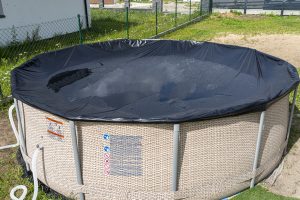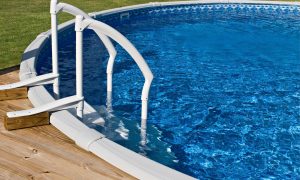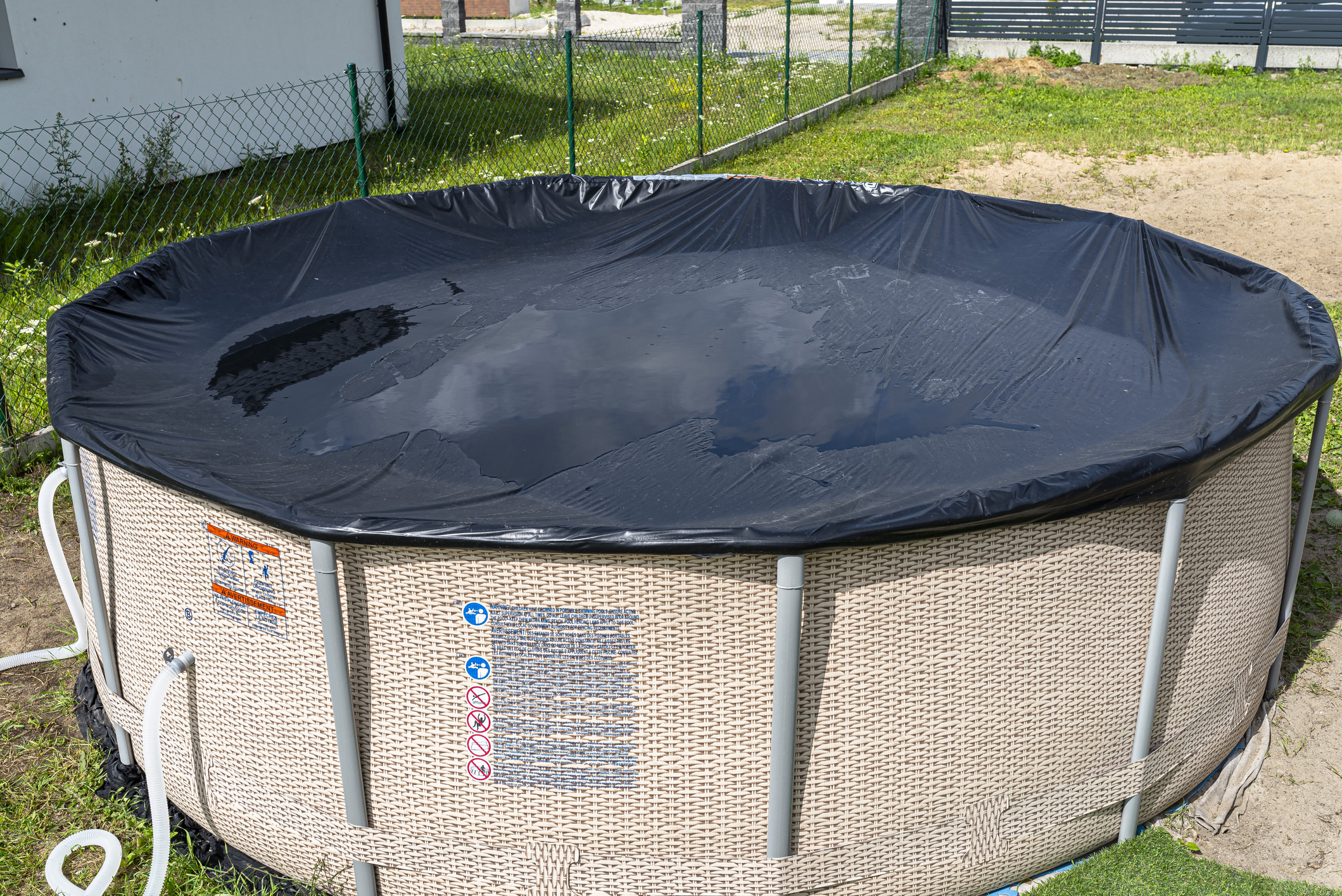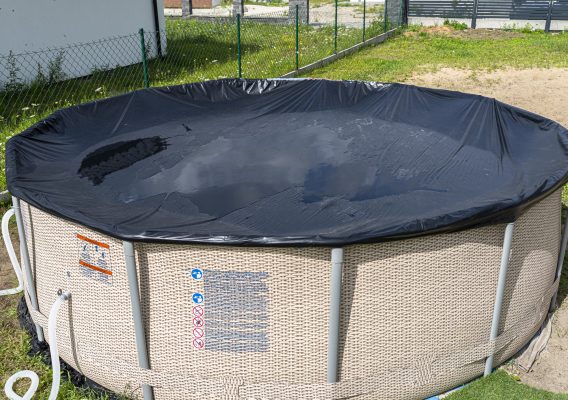It is very important to follow the proper winterizing steps when closing above ground pools in Connecticut and any area that experiences freezing winter temperatures. The Swimming Pool Store has been protecting pools against harsh New England winters for more than 50 years and offers professional pool closing services and tips.
Closing Above Ground Pools Properly is Crucial

It is crucial to take the time to properly close above ground pools for the winter to protect against costly damage and to facilitate an easier opening in the spring. Improperly closing your pool can result in ice damage to your pool’s frame and equipment and could lead to serious water chemistry problems in the spring.
It is important to continue to chlorinate your water and run the filter until closing, even if no longer swimming. This will make your pool closing easier and prevent imbalanced water problems before your final closing. You will save time, headaches, and money by winterizing your pool to prevent the risk of freezing damage and contamination.
Materials Needed for Closing Pools
It is important to test your water and balance your pool water chemistry before closing above ground and inground pools. You will need test strips or a water balancing kit, or have your water tested at your swimming pool store. Before closing your pool, make sure that you balance your:
- Chlorine
- Alkalinity
- pH
- Calcium hardness
Winterizing chemicals are also required and include:
- Shock
- Phosphate reducer
- Winter clarifier
- Algaecide
- Stain preventer
- Antifreeze
You can get most of your winterizing chemicals in a closing kit, although make sure you have antifreeze ready to protect your plumbing.
Pool closing accessories and equipment required include:
- Winter safety cover
- Skimmer plate or gizmo
- Shop vac or air compressor to blow the lines
- Jet rubber plugs
- Proper winter cover materials like cables or water bags
 Steps to Closing Above Ground Pools
Steps to Closing Above Ground Pools
Follow these steps to properly close your aboveground pool:
1. Clean your pool thoroughly – do one last deep clean of your pool before winterizing, including a thorough vacuuming, brushing of the walls, and skimming the surface. This prepares your water for a final balancing and winterizing to prevent the growth of algae and to prevent stains over the winter.
2. Test and balance your pool water – properly balanced pool water optimizes winterizing chemicals and makes opening easier in the spring. Your goal is a chlorine level between 1 – 3 ppm, alkalinity level between 100 – 150 ppm, pH between 7.4 – 7.6, and calcium hardness between 175 – 225 ppm. Be sure to adjust alkalinity before adjusting pH. Adjust the calcium hardness as hard water deposits can form unsightly, crusty build-up over time in your pool and plumbing, and too soft of water can damage tiled pools and corrode metal.
Add your pool shock and algaecide from the winter closing kit, which usually comes with a clarifying enzyme treatment and a bottle or a ball that you puncture and leave in the water. This works to help prevent algae growth for an easier opening in the spring. Some winterizing chemicals need to circulate with the pump running for at least an hour prior to draining water and closing, read the instructions on your pool winterizing chemicals.
3. Drain the water – when your pool is clean, and the water is balanced with winterizing chemicals added, it is time to drain water below the skimmer line. Lower the water 3 to 6 inches below the skimmer when using a solid, floating cover.
4. Blow out the lines – Use your shop vac to blow air through the lines to remove any water that might freeze and crack the plumbing lines over the winter. Add your winter plugs and fittings over the jets, and add anti-freeze in the lines to further protect against freezing damage.
5. Remove any rails or ladders and protect against rodent damage – remove, rinse, let dry, and store rails and ladders over the winter. Be sure to protect your solar cover against mouse damage when storing for the winter.
6. Winterize your pump and filter – you also want to drain the water out of your sand filter and remove any cartridges from a cartridge filter and clean them, allowing them to dry thoroughly and store them for the winter. Be sure to turn off the gas valve if you have a gas heater, and protect your heater against rodent damage over the winter. It is best to move it inside if you can.
Install your winter safety cover – inspect your winter cover well in advance of the day you need to use it to look for signs of damage like holes, rips or tears. Pool safety covers protect children and pets around your closed pool and prevent drowning accidents during the off-season.
Learn more: How to Close Pools for Winter: Complete Guide, Tips, and Step-by-Step Instructions
Pool Closing Services
The Swimming Pool Store offers pool closing for above-ground pools and inground pools to protect your pool against winter damage for an easier opening in the spring.
Pool Closing and Winterization
The Swimming Pool Store has been providing professional swimming pool services and quality products for pool owners in Connecticut since 1969. We offer a large, modern pool supply store and services, including pool openings, maintenance, and closings. Contact us to learn more about the right way to winterize and protect your pool with the proper materials and steps for closing above ground pools.


